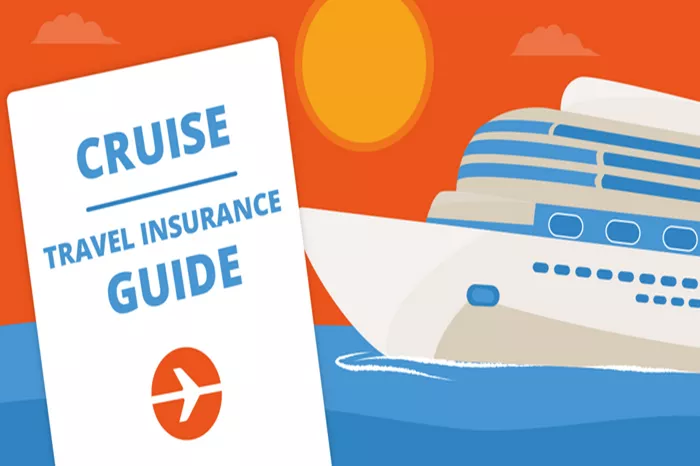Car insurance is a necessity for drivers worldwide, providing protection against unforeseen incidents on the road. However, circumstances may arise where you need to cancel your car insurance. With the digital age transforming various industries, the process of canceling car insurance has also become more accessible. This article delves into whether you can cancel car insurance online, exploring the steps involved, considerations to keep in mind, and the impact of cancellation.
Understanding Car Insurance Cancellation
Before diving into the online aspect, it’s essential to understand what car insurance cancellation entails. Car insurance is a contract between the policyholder and the insurance company. When you cancel your car insurance, you are effectively terminating this contract, meaning the insurance company will no longer provide coverage, and you will not be liable to pay premiums beyond the cancellation date.
Implications of Canceling Car Insurance
Canceling car insurance is not without consequences. Here are some key considerations:
Lapse in Coverage: If you cancel your car insurance without having a new policy in place, you’ll experience a lapse in coverage. This lapse can have several adverse effects, including increased premiums when you decide to purchase insurance again.
Legal Requirements: In many places, it’s illegal to drive without car insurance. Canceling your policy could leave you vulnerable to fines, penalties, or even legal action.
Impact on Credit Score: While canceling car insurance does not directly affect your credit score, failing to pay any outstanding balances on your policy might.
Can I Cancel Car Insurance Online?
In today’s digital age, many insurance companies offer the convenience of managing your policy online. But can you cancel your car insurance online? The answer is, it depends.
Steps to Cancel Car Insurance Online
If your insurance company offers online cancellation, here are the general steps you’ll need to follow:
Log in to Your Account: Visit the insurer’s website or app and log in using your credentials.
Navigate to the Cancellation Section: Look for a section related to policy management or cancellation. This might be under your account settings or policy details.
Review Your Policy: Before proceeding, review your policy details to ensure you understand the terms of cancellation, including any fees.
Request Cancellation: Follow the prompts to request the cancellation of your policy. You may need to provide a reason for cancellation.
Confirm Cancellation: Once you’ve submitted your cancellation request, you may receive a confirmation email or notification. Ensure you keep a record of this confirmation for your records.
Insurance Companies That Require a Phone Call or Written Request
While online cancellation is becoming more common, not all insurance companies offer this option. Some insurers may require you to call a representative or submit a written request to cancel your policy. In such cases, you may need to follow these steps:
Contact Customer Service: Call your insurance company’s customer service line and inform them of your intent to cancel your policy.
Provide Necessary Information: Be prepared to provide your policy number, personal details, and the reason for cancellation.
Submit Written Request (if required): Some companies may ask for a written cancellation request, either via email or traditional mail.
Follow Up: After submitting your request, follow up to ensure the cancellation has been processed and request written confirmation.
See Also: When Can I Cancel Car Insurance?
Considerations Before Canceling Online
Before proceeding with online cancellation, consider the following:
Check for Cancellation Fees: Some insurance companies may charge a cancellation fee, especially if you cancel before the end of your policy term.
Review Your State’s Requirements: In some states, you must provide proof of new insurance before canceling your existing policy. Make sure you’re compliant with local laws.
Consider Timing: Canceling your car insurance mid-term might result in a prorated refund, but it could also mean you lose any paid premiums for that period. Consider the financial implications before canceling.
What Happens After You Cancel Car Insurance?
Once you’ve successfully canceled your car insurance, there are a few things to keep in mind:
Handling Refunds
If you paid your premium upfront, you might be entitled to a refund for the unused portion of your policy. Most insurance companies will issue a prorated refund, though it’s essential to confirm this with your provider.
Notification of Lenders or Leasing Companies
If you have a loan or lease on your vehicle, your lender or leasing company may require you to maintain insurance. In this case, you’ll need to inform them of the cancellation and provide proof of new coverage to avoid any issues.
Obtaining Proof of Cancellation
Always request proof of cancellation from your insurance company. This document serves as confirmation that your policy has been terminated and can be useful if any disputes arise in the future.
Avoiding Future Issues
To avoid complications when purchasing insurance in the future, ensure that you don’t let your coverage lapse. Insurance companies may view a lapse as a sign of higher risk, which can lead to increased premiums when you apply for a new policy.
Legal Considerations of Canceling Car Insurance
State Requirements
In many states, it’s illegal to drive without car insurance. If you cancel your policy and continue to drive, you could face fines, penalties, or even license suspension. Always check your state’s requirements before canceling your car insurance.
SR-22 Requirements
If you’ve been required to file an SR-22 (a certificate of financial responsibility) with your state’s department of motor vehicles, canceling your insurance could lead to severe consequences. Ensure you meet all legal obligations before proceeding with cancellation.
Grace Periods
Some states offer a grace period after canceling your insurance, during which you must obtain new coverage. However, relying on this period can be risky, and it’s generally better to have new insurance in place before canceling your existing policy.
Conclusion
Canceling car insurance online is a convenient option that many insurance companies now offer. However, it’s essential to approach this process with caution. Understanding the implications of cancellation, exploring alternatives, and ensuring compliance with legal requirements are crucial steps to take.
Whether you choose to cancel your car insurance online, over the phone, or through a written request, always keep thorough records of the process. By doing so, you can avoid potential pitfalls and ensure a smooth transition, whether you’re switching providers, selling your vehicle, or simply no longer need coverage.
Remember, while canceling car insurance may seem like a straightforward decision, it carries significant responsibilities and consequences. Taking the time to fully understand these aspects will help you make an informed decision that best suits your needs.






















